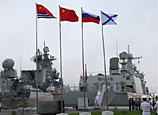
BEIJING, July 9 (Xinhua) -- Worries remain that China and the United States -- one an emerging power, the other an established power -- could be susceptible to a struggle that will eventually lead to war.
Greek historian Thucydides described the situation between Athens and Sparta as a combination of "rise" and "fear," which inevitably resulted in war about 2,400 years ago. Over the past 500 years, when a rising power has challenged a ruling power, war has often followed, reinforcing the concept of "The Thucydides Trap."
In the 21st century, however, China and the U.S. could and must avoid falling into this trap, especially against the backdrop of ever-deepening economic globalization and interdependence.
The upcoming 5th China-U.S. Strategic and Economic Dialogue (S&ED), which runs from Wednesday to Thursday, could prove that politics between major powers do not have to be confrontational, even though frictionless interactions between emerging and established powers may be only something of a fantasy.
As the first high-level dialogue since Chinese President Xi Jinping and his U.S. counterpart Barack Obama held a summit in California last month, the event will cover topics ranging from politics, security and climate change to trade, energy, financing and Asia-Pacific cooperation.
Newly-appointed senior officials from both governments will meet to implement the consensus reached at the Xi-Obama summit on building a new model for relations between major powers -- a model that features coordination and cooperation instead of rivalry and confrontation.
It is a long-term and difficult task to translate the consensus into concrete efforts that drive the development of bilateral relations, as differences in political systems, cultural traditions and stages of development can easily contribute to misunderstanding.
Some Americans regard China's development as a sacrifice of U.S. interests, and they have called for containing the emerging economy.
 |
















 Teenage crash victims were talented students
Teenage crash victims were talented students


![]()
